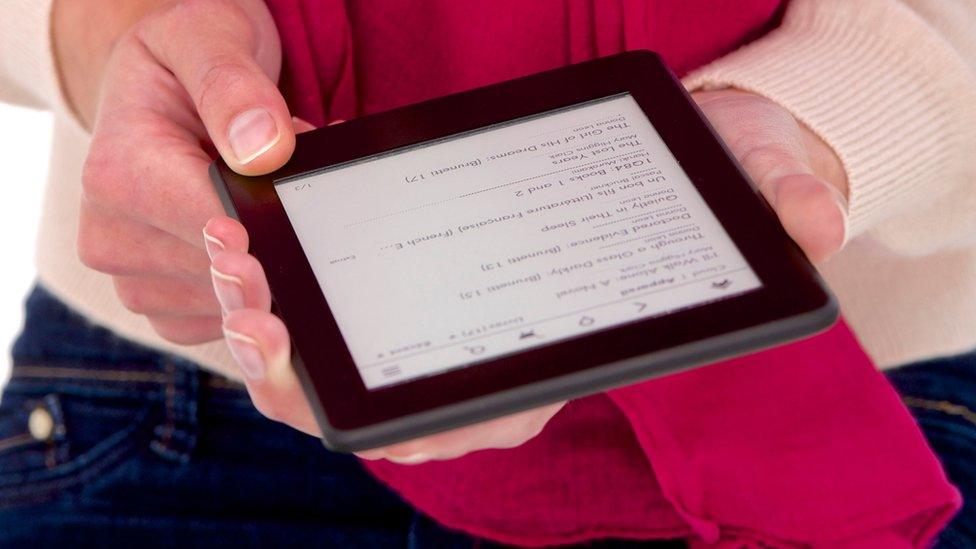Coronavirus lockdown hastens e-book VAT exemption
- Published

The chancellor said he wanted to make it cheaper to buy e-books during lockdown
The price of e-books in online stores is being cut immediately after the government brought forward plans to scrap VAT on online publications.
The 20% tax was due to be dropped in December, but it is taking effect now because of the coronavirus pandemic.
It means the cost of an e-book costing £12, for example, should fall to £10.
E-newspaper subscriptions could come down by £25 a year, although the owner of the Times said its subscription would remain the same.
Chancellor of the Exchequer Rishi Sunak said he wanted to make it "as easy as possible for people across the UK to get hold of the books they want while they are staying at home and saving lives".
"That is why we have fast-tracked plans to scrap VAT on all e-publications, which will make it cheaper for publishers to sell their books, magazines and newspapers."
Amazon manufactures its own line of e-readers and is one of the largest sellers of digital books.
It said it was working "as fast as possible to lower prices" for customers, with many titles already lower.
"We welcome the government's decision to remove VAT on e-books due to the current situation, which will benefit readers, authors and publishers," it told the BBC.
"For titles where Amazon sets the price, we will reduce the prices of books not already on promotion."
The price drop will also affect e-newspapers, although it is unclear whether their publishers will pass the price drop on to consumers.
News UK, which offers digital subscriptions for The Times, said prices would initially stay the same.
"This exemption, particularly when the industry is facing pressures due to Covid-19, will enable current pricing to be sustained for as long as possible for the benefit of consumers and will maintain investment in the high-quality journalism that our readers rely on."
The VAT cut does not apply to audiobooks, which the Royal National Institute of Blind People said was "disappointing".
- Published11 March 2020
